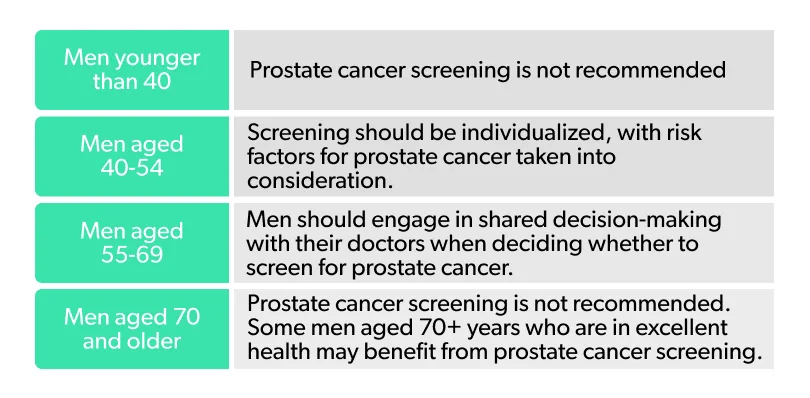Here's what we'll cover
Here's what we'll cover
Here's what we'll cover
Here's an unusual (and likely popular) potential prescription to lower your prostate cancer risk: ejaculating more. Some research suggests there is a link between ejaculation frequency and prostate cancer. Studies have found men who ejaculate more regularly have a 20–36% lower risk of developing the disease.
What is prostate cancer?
Prostate cancer is the second-most common cancer in men after skin cancers. Approximately 1 in 9 men in the United States will receive a prostate cancer diagnosis in their lifetime, and over 2% will die from the disease (ACS, 2021).
Prostate cancer develops in the prostate gland, a walnut-sized organ that sits between the bladder and the penis, right in front of the rectum. The prostate produces seminal fluid, which nourishes and transports sperm during ejaculation.
Ejaculation and prostate cancer: is there a link?
In a 2016 study, researchers examined questionnaires of over 31,000 men who kept track of how many times they ejaculated in a month. The study found that men who reported more than 21 ejaculations per month had roughly a 20% lower risk of prostate cancer than men who had 4–7 ejaculations a month (Rider, 2016).
However, the science is far from being settled here, and not every study agrees. A 2004 study didn't find any association between ejaculation frequency and prostate cancer risk. Although there is an interesting twist: the study looked at the same men included in the 2016 study (Lietzmann, 2004).
Interestingly, these conflicting results don’t necessarily disprove a potential link between ejaculation frequency and prostate cancer. The disease is more common in older men, and frequent ejaculation might have reduced their risk of prostate cancer as the study respondents aged.
Another study found that young men who reported more sexual activity (including masturbation and sex) actually had a slightly higher risk of developing prostate cancer in their 20s and 30s. But then, more frequent sexual activity seemed to be protective against prostate cancer at age 50 and beyond (Dimitropoulou, 2009).
A 2018 meta-analysis of 21 studies reported that moderate ejaculation (defined as 2–4 times per week) was "significantly associated" with lower cancer risk, but that doesn’t prove the risk was lower due to ejaculating more. Additionally, researchers found men who had fewer sexual partners or started having sex later in life had a lower chance of cancer (Jian, 2018).
However, you need to take care when interpreting this data. There is no proof that frequent ejaculation can help prevent prostate cancer. Some research is leaning that way, but contradictory results like those in the studies above (you'd be forgiven for thinking you were watching a tennis match) show more research is needed.
Scientists aren't sure why masturbation and ejaculation may affect prostate cancer. The theory is that ejaculating more often regularly empties the prostate of irritants and toxins, which might be beneficial in preventing prostate cancer—this is also called the prostate stagnation hypothesis (Rider, 2016).
Prostate cancer risk factors
The most well-established risk factors for prostate cancer include age, family history, and if you’re of African American race and ethnicity. Other potential prostate cancer risk factors include (Leslie, 2021; Rawla, 2019):
Not enough exercise
Diet
Chemical exposures
Prostatitis (inflamed prostate)
Cigarette smoking
Sexually transmitted infections (STIs)
Reducing your risk of prostate cancer
It's not yet clear what causes prostate cancer, although we know age, family history, and being African American are factors. Of course, these are things you can't change, but there are simple lifestyle changes you can make to keep your prostate healthy (Rawla, 2019):
Eating a diet low in saturated fat with a focus on fish, lean protein, vegetables, fruits, and whole grains
Decreasing your dairy consumption
Drinking more coffee and green tea
Engaging in regular physical activity
Maintaining a healthy weight
In addition to adopting a healthy lifestyle, using medications called 5-alpha-reductase inhibitors have been shown to reduce prostate cancer risk, although this hasn’t been approved by the U.S. Food and Drug Administration (FDA) (Rawla, 2019; FDA, 2018).
Screening for prostate cancer
Early detection or prostate cancer screening usually involves what’s called a prostate-specific antigen or PSA test. This is a blood test that measures your levels of PSA, a protein made by the prostate gland. Issues with prostate health (like cancer, benign prostatic hypertrophy, and prostatitis) lead to higher PSA levels.
That said, elevated PSA levels do not necessarily mean you have prostate cancer. Routine screening is no longer recommended for everyone because it can lead to overdetection, overdiagnosis, and overtreatment (Leslie, 2021).
Here is a summary of the current PSA testing guidelines:

DISCLAIMER
If you have any medical questions or concerns, please talk to your healthcare provider. The articles on Health Guide are underpinned by peer-reviewed research and information drawn from medical societies and governmental agencies. However, they are not a substitute for professional medical advice, diagnosis, or treatment.
References
American Cancer Society (ACS). (2021). Cancer statistics center. Retrieved on Nov. 15, 2021 from https://cancerstatisticscenter.cancer.org/#!/
Dimitropoulou, P., Lophatananon, A., Easton, D., Pocock, R., Dearnaley, D. P., Guy, M., et al., & UK Genetic Prostate Cancer Study Collaborators, & British Association of Urological Surgeons Section of Oncology. (2009). Sexual activity and prostate cancer risk in men diagnosed at a younger age. BJU International, 103 (2), 178–185. doi:10.1111/j.1464-410X.2008.08030.x. Retrieved from https://pubmed.ncbi.nlm.nih.gov/19016689/
Jian, Z., Ye, D., Chen, Y., Li, H., & Wang, K. (2018). Sexual activity and risk of prostate cancer: a dose–response meta-analysis. The Journal of Sexual Medicine , 15 (9), 1300–1309. doi:10.1016/j.jsxm.2018.07.004. Retrieved from https://pubmed.ncbi.nlm.nih.gov/30122473/
Leitzmann, M. F., Platz, E., Stampfer, M., Willett, W. C., & Giovannucci, E. (2004). Ejaculation frequency and subsequent risk of prostate cancer. JAMA , 291 (13), 1578–1586. doi:10.1001/jama.291.13.1578. Retrieved from https://pubmed.ncbi.nlm.nih.gov/15069045/
Leslie SW, Soon-Sutton TL, Sajjad H, et al. (2021). Prostate cancer. [Updated 2021 Sep 17]. In: StatPearls [Internet]. Retrieved on Nov. 15, 2021 from https://www.ncbi.nlm.nih.gov/books/NBK470550/
Rawla, P. (2019). Epidemiology of Prostate Cancer. World Journal of Oncology, 10 (2), 63–89. doi:10.14740/wjon1191. Retrieved from https://www.ncbi.nlm.nih.gov/pmc/articles/PMC6497009/
Rider, J. R., Wilson, K. M., Sinnott, J. A., Kelly, R. S., Mucci, L. A., & Giovannucci, E. L. (2016). Ejaculation frequency and risk of prostate cancer: updated results with an additional decade of follow-up. European Urology , 70 (6), 974–982. doi:10.1016/j.eururo.2016.03.027. Retrieved from https://www.ncbi.nlm.nih.gov/pmc/articles/PMC5040619/
U.S. Food and Drug Administration (FDA). (2018). FDA Drug Safety Communication: 5-alpha reductase inhibitors (5-ARIs) may increase the risk of a more serious form of prostate cancer. Retrieved on Nov. 12, 2021 from https://www.fda.gov/drugs/drug-safety-and-availability/fda-drug-safety-communication-5-alpha-reductase-inhibitors-5-aris-may-increase-risk-more-serious .



